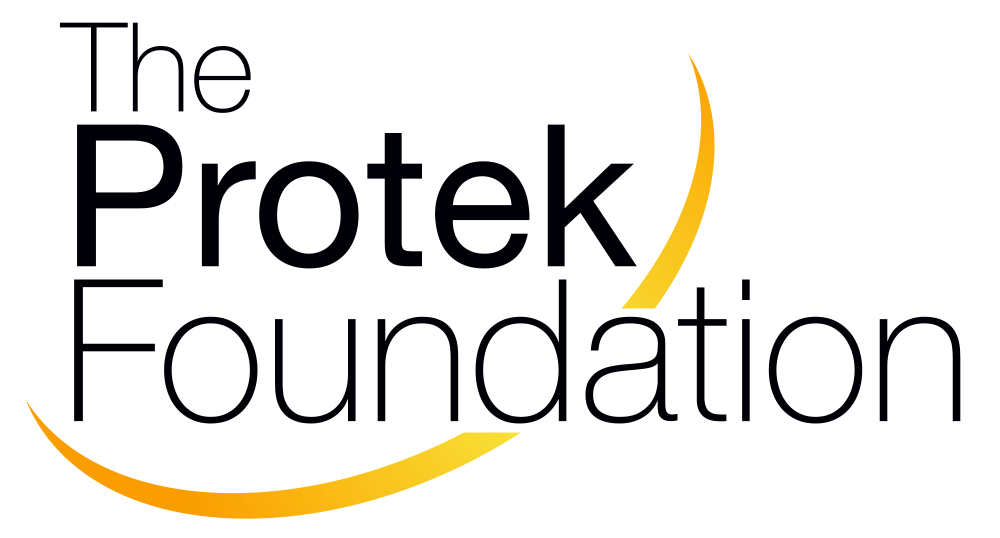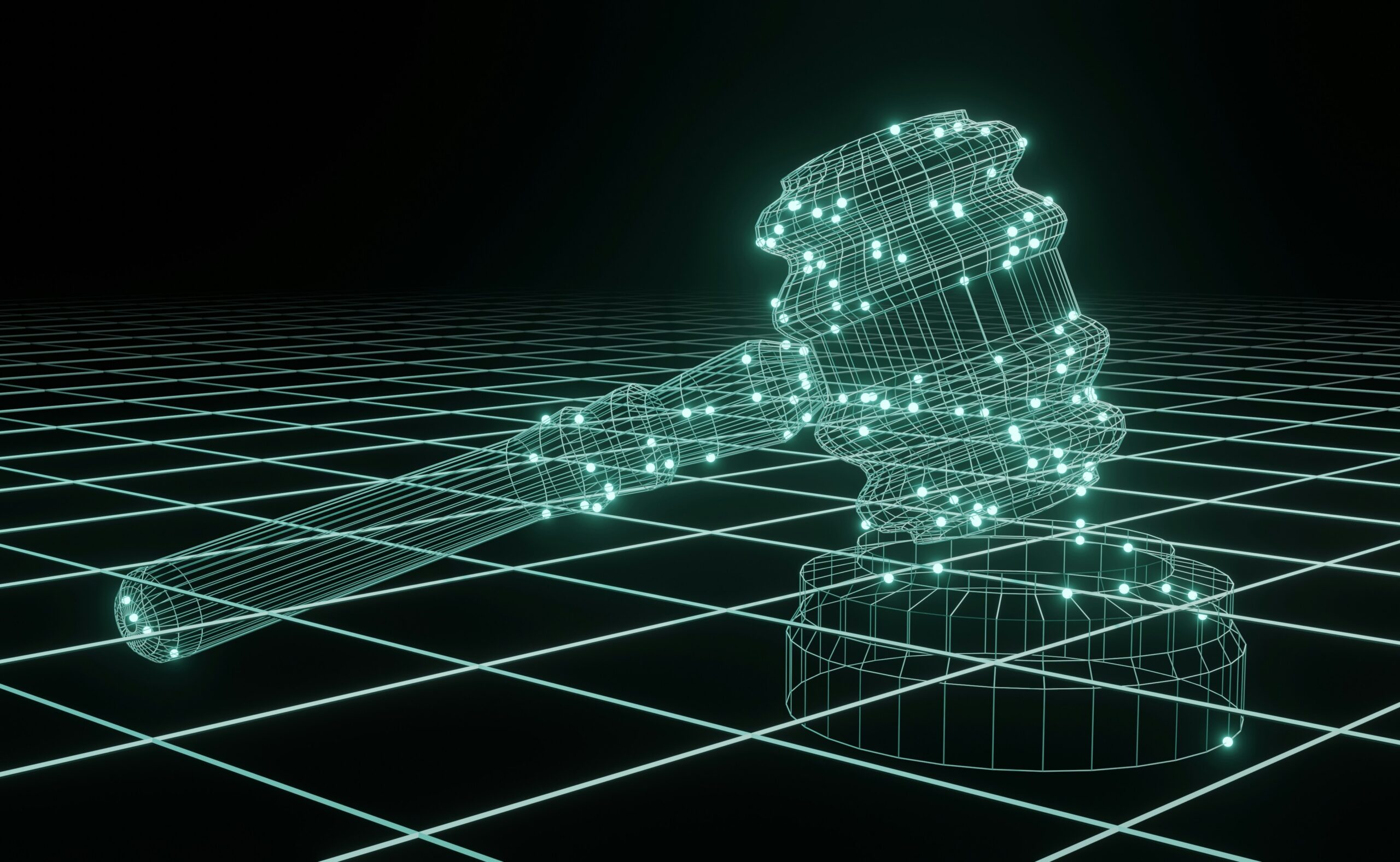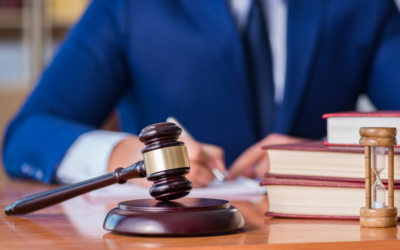The refreshing breeze litigators might be sensing blowing in from the Western reaches of the Northern District of Illinois likely emanates from the courtroom and chambers of Judge Iain Johnston where his congenial manner not only brightens the day that any litigator finds that they have a matter up on his docket, but also regularly finds its way into his opinions such as in a recent IP matter between two micro-breweries where Judge Johnston opened his ruling with, “If ever there was a case where it could be said that it would best be settled over a beer, this is it.”
While Judge Johnston seems to be finding his time increasingly consumed with hot button substantive matters that have been landing in his Rockford, Illinois courtroom, he continues to be a (the?) leading voice from the Federal bench on issues related to ESI and eDiscovery, a topic of great interest to him back to his post-government private practice days.
As with all else, Judge Johnston applies his congenial and practical hand in helping litigants navigate through the eDiscovery bumps in matters before him. And, as one would expect (perhaps, hope?), his trademark disarming wit often makes its way into his opinions, such as in City of Rockford v. Mallinckrodt ARD Inc., 326 F.R.D. 489, 492 n.2 (N.D. Ill. 2018) where he sought to put litigators’ ESI fears at ease with the following:
The Court pauses here for a moment to calm down litigators less familiar with ESI. (You know who you are.) In life, there are many things to be scared of, including, but not limited to, spiders, sharks, and clowns – definitely clowns, even Fizbo. ESI is not something to be scared of. The same is true for all the terms and jargon related to ESI. Discovery of ESI is still discovery, governed by the same Federal Rules of Civil Procedure as all other civil discovery. [Citation omitted]. So don’t freak out.
With all of that, it’s no surprise that Judge Johnston’s speaking and panel sessions on ESI and eDiscovery are the hottest tickets at the premier conferences across the country, and his insights on the current state and future developments in the realm are sought after for publication such as his recent interview on “The New Era of Ediscovery and His Hope for Generative AI” by Justin Smith for Everlaw (Link: https://bit.ly/3BGlQEj) in which Judge Johnston’s trademark foresight, wit, and congeniality shine through.
But, could it be that the congenial Johnston’s patience with technically overmatched and/or disinterested attorneys is beginning to wear thin?
For, mixed among various pearls of Johnston ESI/eD wisdom he speculates on why, decades into the “era of ESI,” the profession is still deficient in its related competencies, “I do believe that some, if not many, litigators are still scared of ESI…,” before dropping the hammer…
“I sincerely hope that it doesn’t take regulators charging attorneys with violating their ethical obligations to stay current on technology, malpractice cases being successfully litigated, and attorneys and clients feeling the sting of sanctions for counsel to care about understanding ESI.
If Judge Johnston is thinking out loud about it, How far behind can regulators, opposing counsel pursuing their clients’ best interests, or clients themselves be in pursuing their legitimate interests in your dispatching your ESI obligations with at least competence, if not excellence? It would appear that the defense of “because it’s a nascent technology” for not competently handling one’s ESI responsibilities has lost its flavorability of reasonableness with the bench.
So, What now? How can those who fear not being up to ESI snuff improve their circumstances and insulate themselves from these pressing risks?
Judge Johnston stresses the need for education and professional development, and affording ESI and eDiscovery the priority that they demand.
On those notes, he calls out law schools for not integrating the topic to equip graduates with at least the minimally required skills (while giving a shout out to yours truly [thank you] for co-designing and teaching one of the first such law school classes years ago).
Also receiving a raised eyebrow from the jurist are law firms for not compensating for where law schools fall short by implementing ESI professional development programming for their new associates. And, finally, for those more seasoned practitioners, there is the need to engage in professional development opportunities that raise and maintain competence in the constantly changing ESI world.
Protek could not be more in line with these remedies of Judge Johnston. It’s why we formalized our efforts in this area in 2020 to form the Protek EDGE ESI and Cyber Institute ( https://www.protekintl.com/edge-institute/ ) with its mission being dedicated to:
“…equipping attorneys to aggressively pursue and defend their clients’ interests as they relate to and are impacted by electronic information and evidence.
In addition, we provide timely education and awareness that equips attorneys with the technological competence to which they are ethically bound.
Whether it be through an existing or custom-designed CLE course through the EDGE Institute, or one from the many other qualified available sources, quality ESI professional development courses abound. If you haven’t already, get started on them, and keep the topic on your regular rotation, as the technologies are constantly emerging and changing.
In addition, while undeniably sounding self-serving…partner up with an ESI and Digital/Cyber expert. ASAP! Look, our examiners are the experts’ experts and are immersed in the realm nearly 24/7 and even they wouldn’t be sufficiently on top of the necessary range of related topics were it not for our Vice-President of Research & Development and Quality Control who is specifically tasked with being on top of the latest trends and technologies for our team so that we can help our clients navigate through not only the known challenges, but also the ESI rapids of which they’ve yet to even see.
The point being, it truly is a near-impossible task for today’s litigators to not only handle their cases and related administrative matters, but also keep on top of the latest in ESI and Digital/Cyber trends.
There not only is no shame in leaning on subject matter experts, it’s a necessity if one is to, at minimum, live up to the profession’s ethical requirements, let alone look to aggressively leverage the strategic advantages that are there to be had for their clients.
So, identify 2, maybe even 3 or 4 ESI and Digital/Cyber Forensics experts/firms and get with them, before the next time that you think you might need their services arises. Take the time to vet them to understand their services, capabilities, and limitations, and, most importantly, that they’re compatible with your values and how you like to practice. Run through a few scenarios, existing cases even, and ask their thoughts on how they’d approach any eDiscovery or Forensics issues.
Once you’ve found 2 or 3 who fit your bill, keep them in your Rolodex so you know that you’re likely to always have one who will be queued up and ready to jump on your next matter with all sense of urgency required.
You may also want to consider opting in on Protek’s Practitioner’s EDGE Alerts and Tips email service where we share practice-relevant litigation and investigation ESI and electronic evidence developments and tips. You can do so by sending an email to info@protekintl.com with a subject line of “Subscribe.”
As Judge Johnston intones, there’s no need whatsoever to be afraid of ESI (and Digital/Cyber Forensics), but it does demand at least a bit of your attention if you’re to effectively integrate ESI and electronic evidence into your practice and be free of the related avoidable pitfalls. Take heart, engage in a bit of on-going professional development, lean into the support of qualified experts and you’re released to focus on your practice and all the activities that led you to become a lawyer in the first place!






0 Comments